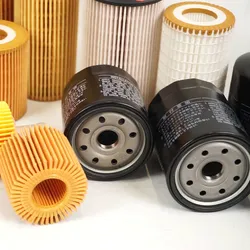Oil Filters – Everything You Need to Know
2024-10-28
What is an oil filter, and why is it important?
An oil filter is a device used in vehicles and machinery to remove contaminants from engine oil. As the oil circulates through the engine, it picks up dirt, metal particles, and other debris. The oil filter traps these impurities, ensuring the engine stays lubricated with clean oil. This helps prevent wear and tear and extends the engine’s lifespan.
How often should I replace my oil filter?
Most mechanics recommend changing the oil filter during every oil change, typically every 3,000 to 7,500 miles (or according to your vehicle’s maintenance schedule). For some high-performance engines or vehicles using synthetic oil, the interval can be extended. Skipping oil filter replacement can lead to clogged filters, which reduce engine performance and cause long-term damage.
What are the different types of oil filters?
The most common types include:
1. Spin-on filters: Easy to install; contain a canister and filtering element.
2. Cartridge filters: Use only a replaceable filter element, reducing waste.
3. Magnetic filters: Use magnets to attract metal particles in the oil.
4. Bypass filters: Offer additional filtration for high-performance engines.
5. Thermal chamber filters: Use heat to burn off contaminants, increasing oil longevity.
How do I choose the right oil filter for my vehicle?
1. Match the filter type to your engine—check your owner’s manual for recommendations.
2. Consider driving conditions: If you drive in dusty environments or tow heavy loads, choose a high-performance filter.
3. Select high-quality brands known for durability and efficient filtration.
4. Ensure compatibility with your oil type—some filters work better with synthetic or high-mileage oils.
5. Look at the micron rating: A lower micron rating means finer filtration but can also restrict oil flow.
What happens if I don’t replace the oil filter?
Neglecting oil filter replacement can cause:
Clogged filters that block oil flow, increasing engine friction.
Dirty oil circulation leading to sludge buildup.
Reduced fuel efficiency and lower engine performance.
Potential engine overheating and long-term damage.



